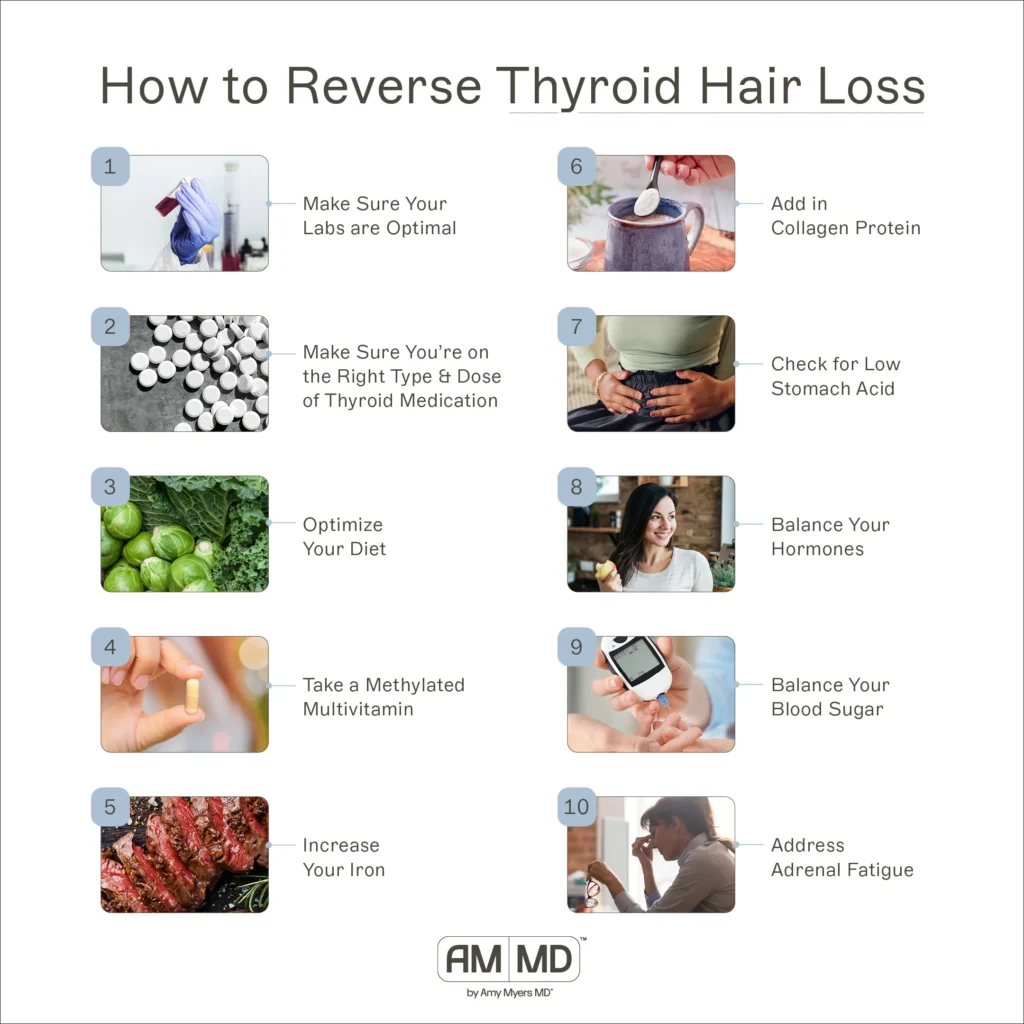Struggling with hair loss and wondering if your thyroid is to blame? You’re not alone. Many people experience unexpected hair shedding, only to discover that their thyroid health plays a significant role. Whether it’s hypothyroidism and hair thinning or the challenges of hyperthyroidism, understanding the connection between your thyroid and hair loss is the first step to finding a solution. The good news? There are effective ways to regrow hair after thyroid imbalance and restore your hair’s natural health. Let’s dive into what’s happening and, more importantly, how to fix it.
Why Does Thyroid Dysfunction Cause Hair Loss?
Your thyroid gland regulates essential hormones that impact nearly every function in your body—including hair growth. When these hormones are out of balance, whether due to an underactive (hypothyroidism) or overactive (hyperthyroidism) thyroid, your hair follicles suffer. This disruption can lead to thyroid disease causing hair shedding, often resulting in thinning hair, slow regrowth, or even bald patches.
Thyroid hormones impact on hair growth because they control the hair cycle’s three phases: growth (anagen), resting (telogen), and shedding (catagen). When thyroid function is off, more hair shifts into the shedding phase, making it harder for your scalp to maintain a full, healthy head of hair.
How to Stop Hair Loss from Thyroid Issues
If you’re dealing with thyroid-related alopecia treatment, the first step is to address the root cause: your thyroid health. Here’s what you can do:
1. Get Your Thyroid Levels Checked
A simple blood test can measure your TSH, T3, and T4 levels to determine if your thyroid is functioning properly. Work with your doctor to find the right medication or treatment plan.

2. Manage Your Medication
Some thyroid medications can contribute to hair loss. If you notice increased shedding after starting a new prescription, consult your doctor about adjusting your dosage or exploring alternative treatments.
3. Focus on Nutrition
Dietary changes to combat thyroid hair loss include ensuring you get enough iron, zinc, selenium, and vitamins D and B-complex. These nutrients are vital for hair follicle recovery and overall thyroid function.
4. Try Natural Remedies for Thyroid Hair Loss
Many people find success with autoimmune thyroid hair loss remedies such as biotin supplements, scalp massages, and essential oils like rosemary and peppermint, which promote circulation and hair growth.

Best Shampoos and Products for Thyroid-Related Hair Loss
Choosing the right hair products can make a big difference in preventing hair loss in thyroid patients. Look for shampoos that are sulfate-free and packed with nourishing ingredients like keratin, collagen, and caffeine. These can help strengthen your hair and encourage growth while being gentle on sensitive scalps.
How Long Does It Take to Regrow Hair After a Thyroid Imbalance?
Hair regrowth after a thyroid imbalance varies from person to person. Once your thyroid levels are stabilized, you may notice new hair growth within three to six months. However, full recovery can take up to a year. Be patient and consistent with your treatment plan.
Final Thoughts
Thyroid and hair loss connection explained—it’s real, but it’s also manageable. With the right approach, you can reverse hair thinning and promote healthy regrowth. Prioritize thyroid health, nourish your body with the right nutrients, and choose hair care products designed for sensitive scalps. Whether you need hyperthyroidism hair regrowth tips or strategies to combat hypothyroidism-related thinning, consistency is key. Stay proactive, and your hair will thank you.



